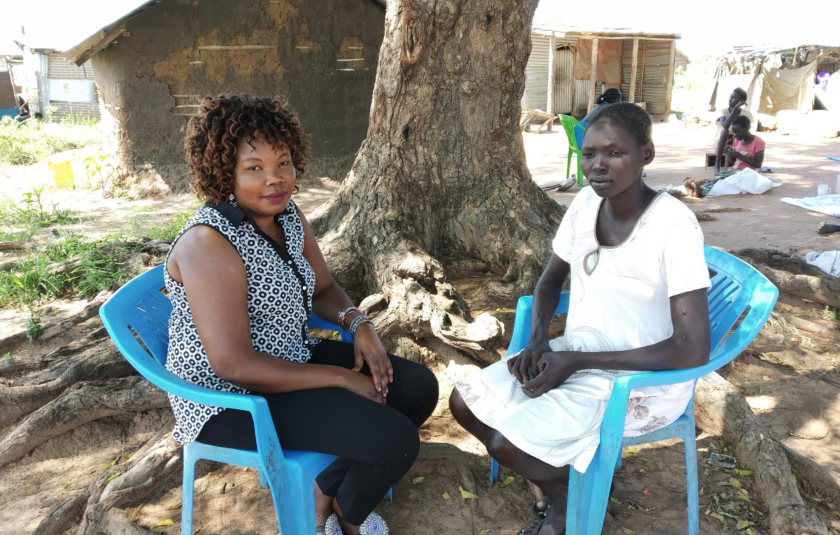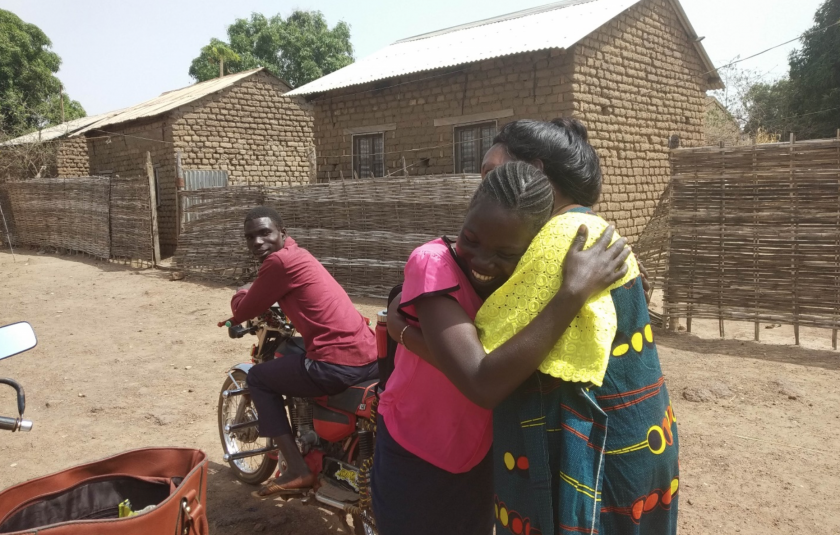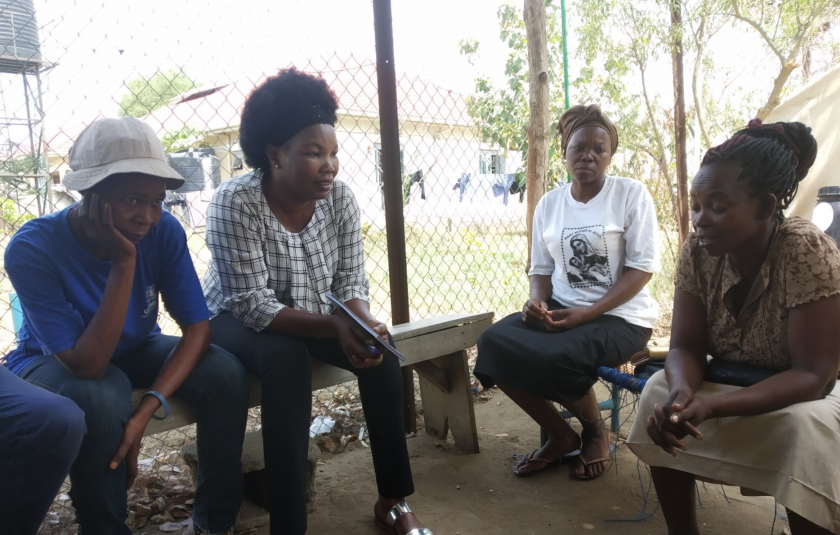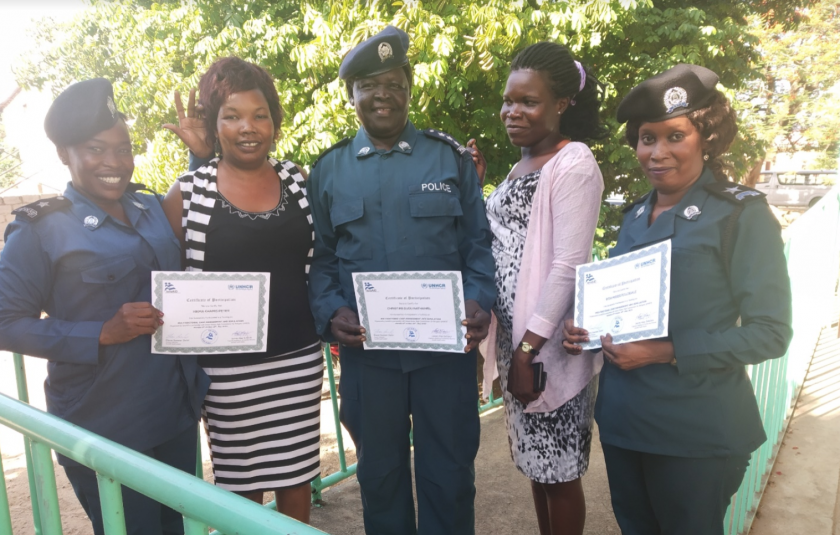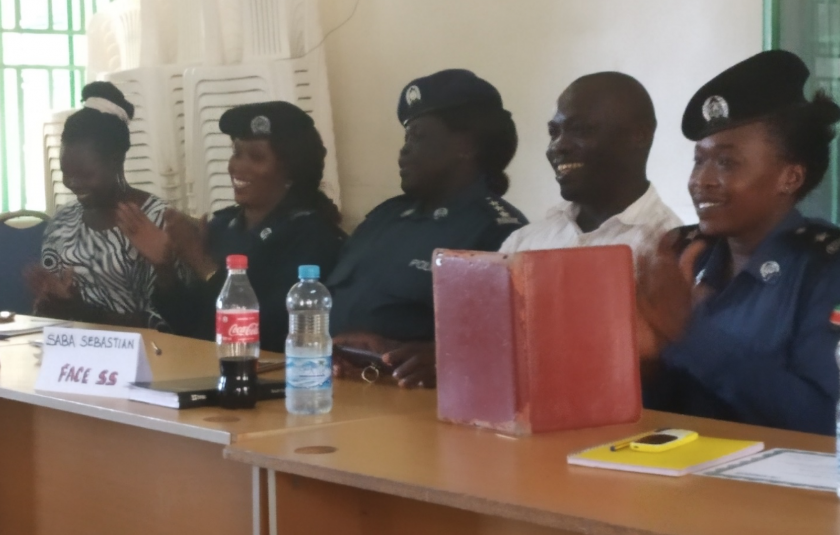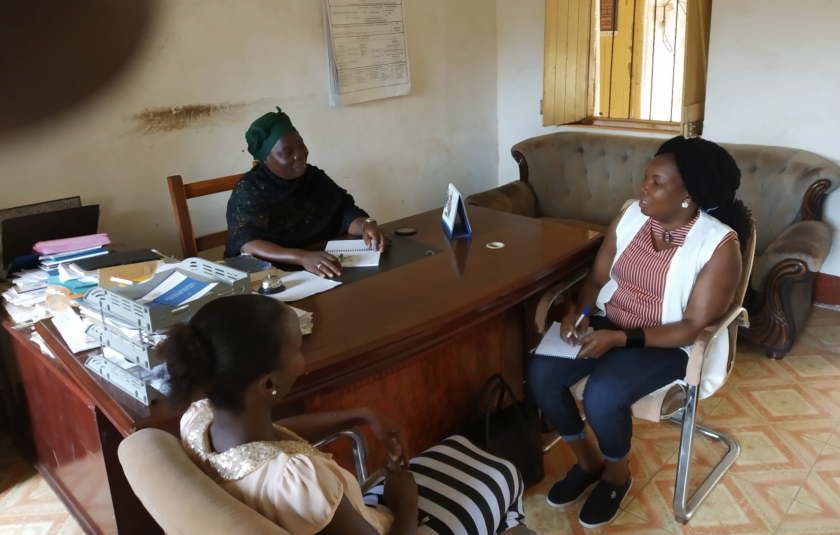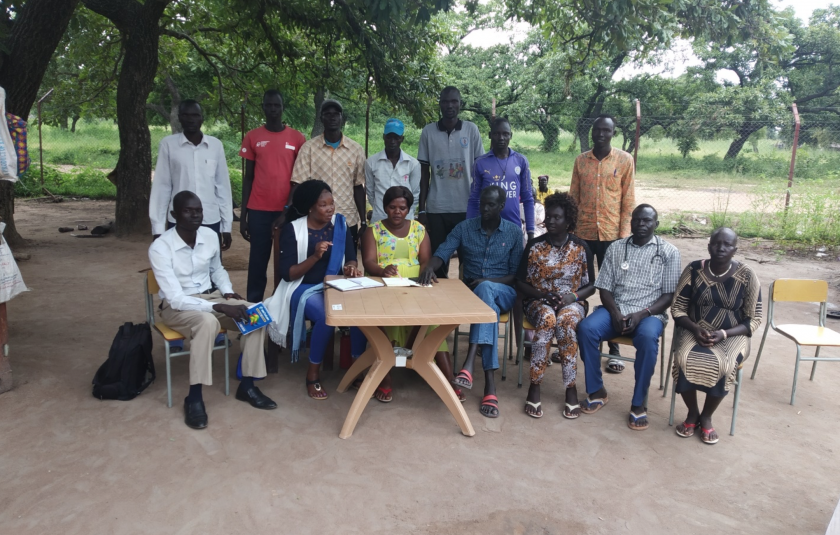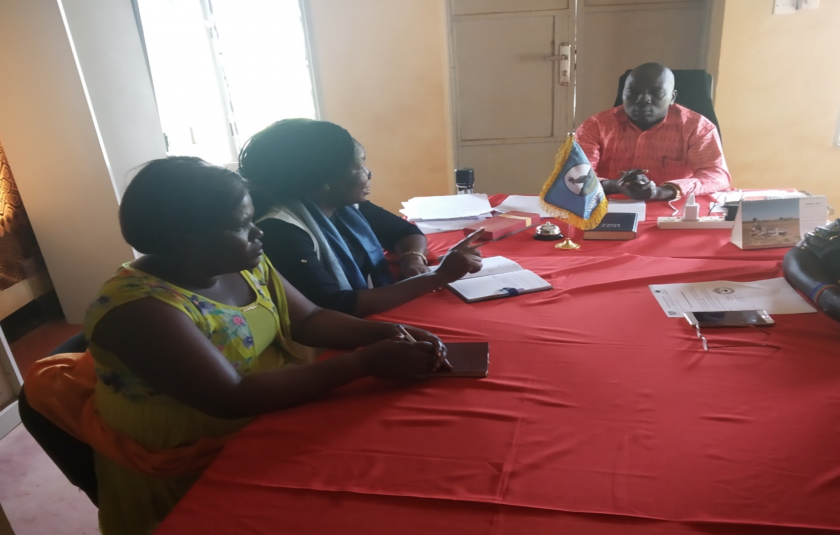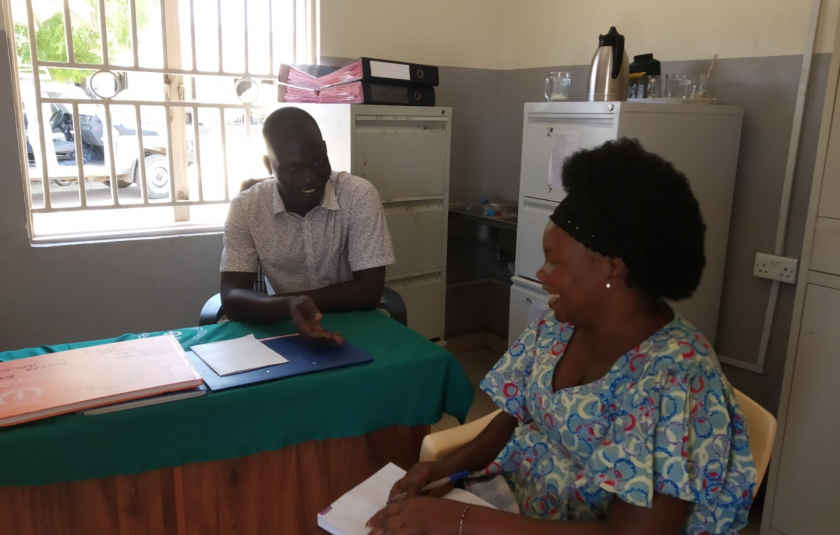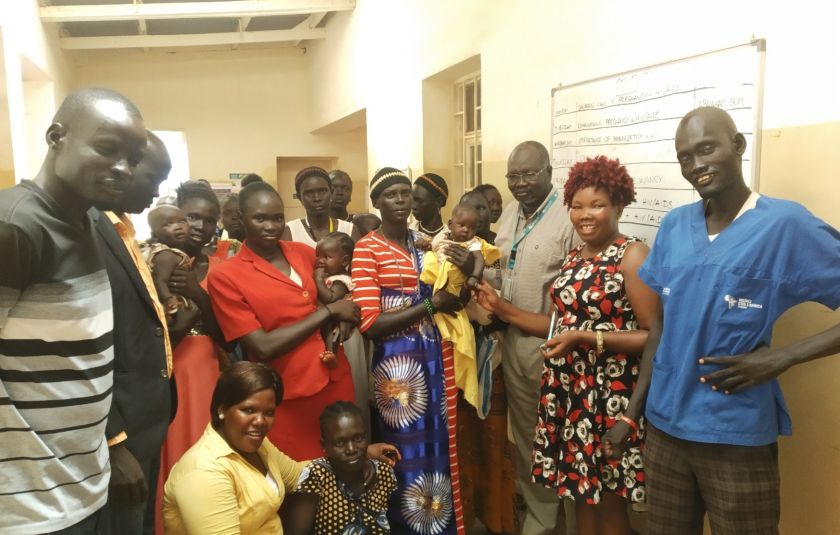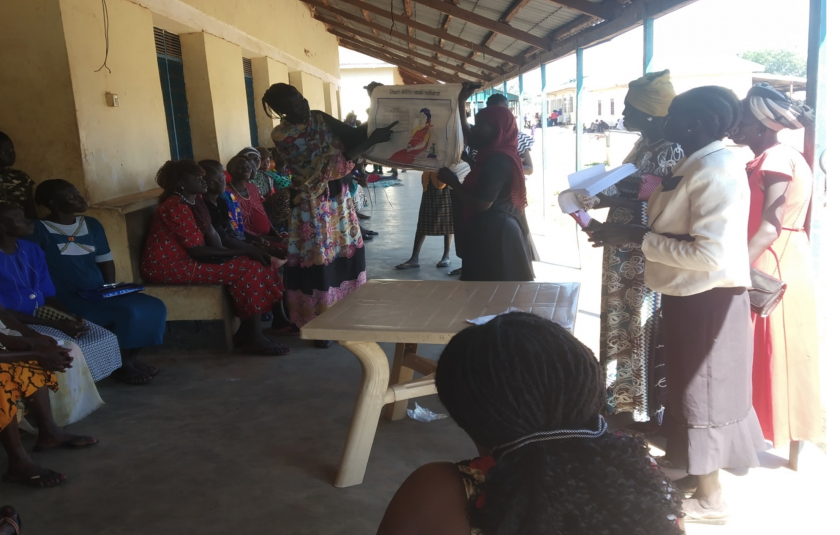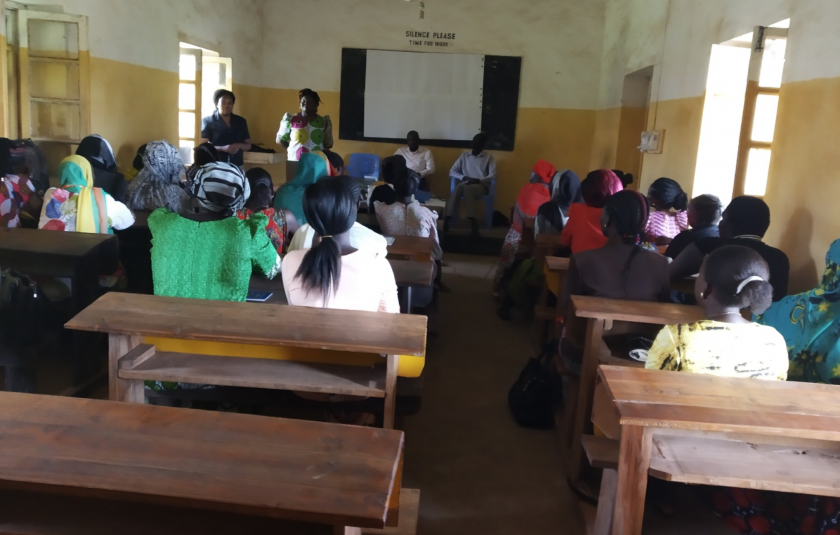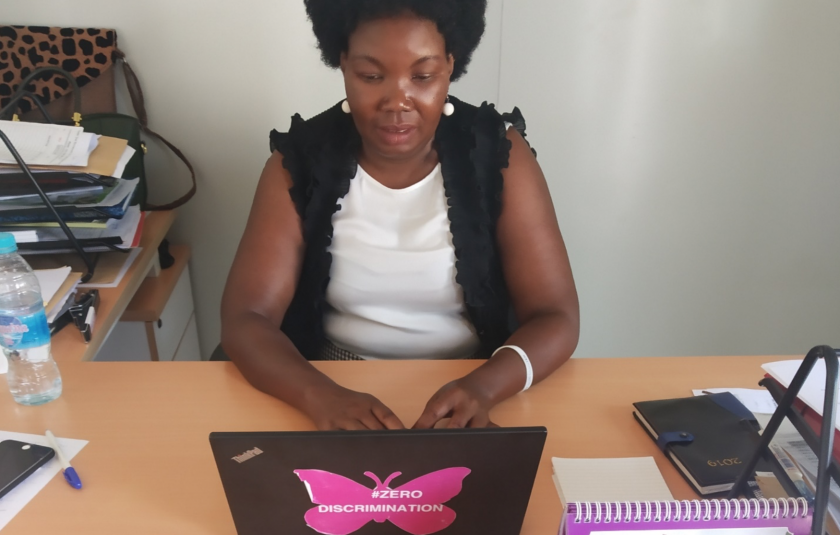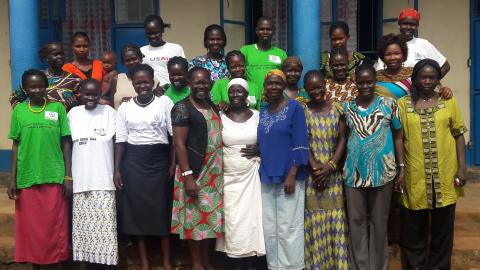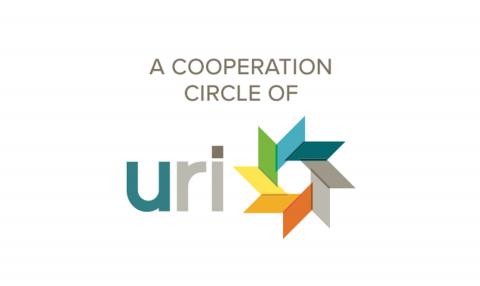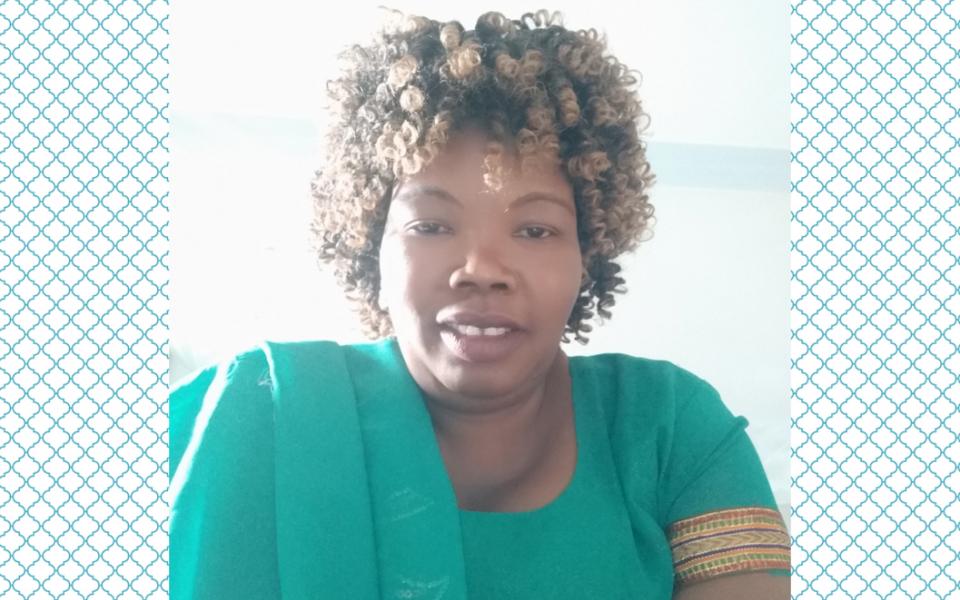
Interview with Jane Alex, convener of Wipe My Tears Foundation (a URI Cooperation Circle in Juba, South Sudan), and Sally Mahé, Senior Consultant URI
Please tell me about Wipe My Tears Foundation.
Based in South Sudan, the Wipe My Tears Foundation (WTF) was founded when the country was still struggling to overcome the endless nightmares of war. Wipe My Tears Foundation was formed by women who have been affected by war. It is an all-inclusive women’s group with men who participate. Our membership hails from different religions and cultural backgrounds.
We are located in South Sudan, a country that has endemically faced gruesome conflict, with some of notable attacks being in 2013/2016, such as the Bentiu massacre, where up to 300,000 people are estimated to have been killed in the war between forces of the government and the opposition. In what seems to be a war driven along ethnic undertones, mainly between the Dinka ethnic group, which is widely accused of pitching hatred against other ethnic tribes; a courageous group in Wipe My Tears, from the Catholic, Anglican, Muslim, Pentecostal, Adventist and Orthodox faiths, provided a window of hope to address ripple effects of the war. During the past twenty-one years of Sharia law, wars between Muslims and Christians caused unrest in the country. The past four years of tribal wars between the Dinka against Nuer and Eguatoria people have divided several communities, delayed the progress of these communities, and denied them the opportunity to establish basic services.
Amidst such divisions, our group aims to “wipe the tears” of the so many broken souls through supporting the destitute population that has been robbed by war of their dignity and esteem regardless of their religions or cultural difference.
Through its efforts, our group intends to build connections, trust and harmony in the community. Other efforts are geared towards fostering awareness on the HIV/AIDS pandemic and people with disabilities. We help orphans and street children live free from violence and discrimination, and empower them to make decisions affecting their lives. Our purpose is to ensure an improved quality of life for the vulnerable groups of people living in South Sudan.
Click the yellow arrows to scroll through the photos in the slideshow below.
Please tell me about an activity you are involved in with WTF where you were in a position of leadership.
I organized a workshop on empowering women for peace. I was able to coordinate workshop activities with WTF staff and all stakeholders and to get important stakeholders involved in our workshop activities such as the Hon. Minister of Gender, Child and Social Welfare.
I was able to bring together the chairperson, who works with people with disabilities, and our donors from the United Nations Mission Public Information Office in South Sudan (UNMISS), Joint Monitoring Committee (JMC), as well as Ceasefire and Transitional Security Arrangement Monitoring mechanism (CTSAMM). It was difficult to get these persons involved with project activities, but because of the leadership in me, I was able to see it through.
For me, in this situation, leadership meant the ability to plan together with others. This involved leading team members, staff and volunteers; and, the ability to control and direct.
What was it about you in this situation that makes you a good leader?
Good personality and communication skills. The donor wanted key government officials to get involved in the project activities, which is not easy in South Sudan. It requires persuasion and convincing language, especially when it concerns humanitarian activities. Because of my inner-born ability to create good relationships with people, I was able to connect easily and talk with the required government officials and convince them to take part in the project implementation.
So far, what have been the most meaningful experiences for you?
Working with the most vulnerable groups of people; that is to say, people with special needs, women and children, and more specifically, widows and orphans; was most meaningful.
Being the voice of the voiceless was the most amazing experience for me because of the huge response from the people - the love and the gratitude and the appreciation I received was very amazing and much more meaningful to me than any material gifts I could have received from getting work done.
I would love to know more about your story…what beliefs or experiences were important in your family or village upbringing? Was there something memorable in your life experience, (something that makes you who you are today) that might guide others?
I grew up as an orphan in the refugee camps in the northern part of Uganda. Lots had happened, but I always reflected on my spiritual mother, who always used to tell me, “My daughter, I pray to almighty God to guard your path to be the mother of all. You must ‘look with your heart and feel with your eyes,’ for this will help you make the right decisions in life. Never will you use your eyes for seeing things, because it will mislead your path.” So this big inspiration stayed in me as I grew up. After the death of my parent and my elder brother, I reflected on the memories of my spiritual mother and my dad, who used to say I got “a heart of a gold.” The two powerful weapons make me believe maybe they might have seen something in me beyond what I can imagine.
As the difficult situation in the refugee camp kept worsening, I took it upon myself to protect my siblings, thinking getting married would solve their problems and they would be happy once again. But all the dreams were in vain. It turned out to be a violent marriage, full of abuses and harassment. I had added more injuries to my siblings’ pains. I decided one morning to walk out from the marriage. This gave me life experience, and all I could think of was how I could help other young women going through the same situation.
That very week, I went to church and heard the priest preaching from the book of Isaiah 58:6, “Remove the chains of oppression and the yoke of injustice and let the oppressed go free. Share your food with the hungry and open your homes to homeless poor. Give clothes to those who have nothing to wear, and do not refuse to help your own relatives.” When I heard this reading from the priest, my tears rolled down from my eyes. It’s like the preaching was all about me and God was trying to communicate to me to continue pursuing my dreams because I know how it feels to be hungry, thirsty and alone without support, and no one to turn to when you need a shoulder to lean on.
Luckily enough, I took after my parents and was born naturally kind-hearted with lots of love in my heart. My half-brother picked me among my siblings and sent me to school to further my education, and later diverted my profession into doing social work.
I’m wondering what inspires you to want to make a difference. Where would you say your impulse to step into leadership comes from?
I want to support girls and mentor young women and their families about bringing up their children in order to avoid what I have gone through in my childhood and marriage. My impulse to step into leadership comes from my parents. My nature is being generous. My childhood experiences and the harsh environment we are living in thrust me into leadership in order to protect, guide and support vulnerable groups of people in my community.
What sparks your inner fire to want to help?
My love for humanity and my desire to resolve community needs spark my inner fire. The life experience of women and girls in the last five years was very horrible. The situation was made even worse with the current crisis, massive displacement and disruption of livelihood, which made life very difficult for many people. The government and humanitarian actors focus mostly on internally displaced people (IDP) in the UN camp. But continuous insecurity continues. Most of these people are limited from accessing basic services, causing fluctuating levels of vulnerability. As a result, women and children are forced to adopt risky and sometimes harmful coping strategies, including collection and sale of firewood. Many women and girls are raped and even killed when fetching firewood, and many young girls are forced or auctioned into marriage in order for the family to make a living. This pressure for survival exacerbates the potential for violence among intimate partners.
What keeps you going?
I am very passionate when it comes to human feelings and human rights. I always put other people’s needs before my own needs and I am very grateful to God the Almighty for giving me the ability to manage stress without exposing or transferring it to the people I am working with. I always raise my voice where necessary, while keeping a friendly environment with people around me. Finally, the leadership skills I acquired from the institute.
How would you name or describe this inner voice–the life-giving spirit in you?
I call it love for humanity. I always wish that people should live in harmony - there should be love and peace for everybody in the entire community, country and world at large.
What practices have you found that make a big difference to help you stay on track, to be led from within, and to lead listening to your inner voice?
Life-changing testimonies from the girls and young women of how they used to be, compared to the current life they have now. These testimonies impress me and encourage me to think more about how to support them.
How do you handle setbacks, frustrations, hardships that seem to block your goal?
I take it to the Lord and pray to God, I find solace in God. My personality helps me in handling situations, setbacks, and frustrations. I always work hard to find a solution and I believe that every problem has a solution.
Is there something more that would you like to share?
In addition to what I said above, there were several activities when I was involved in a leadership position, right from a tender age. They are as follows:
- Choir leader in church from the age of 13.
- Assistant head girl from my secondary level.
- Assistant youth leader for Kampala Madi community Association from 2005 to 2007.
- Program Officer for Pita Women Association for Development (PWAD organization) for two and a half years.
- Human Resource manager of Equatoria Holding Company for three years. It is a big Greek company working with UNFAO, UNESCO, WFP, UNHCR and UNWOMAN all over the former ten states of South Sudan.
- NEPWU organization as a protection officer for 4 years.
- The founder and Executive Director of Wipe My Tears Foundation South Sudan (WTF organization).
Jane, thank you very much. May you, all those in Wipe My Tears Foundation, and the people you serve in South Sudan fulfill your aspirations and live in peace.
About the "Inner Voice of Leadership" series:
What inspires ordinary people to be bold? What sustains them? I wanted to dive deeper to explore the sources of strength alive within us. “Inner Voice of Leadership” is a series of interviews with URI Cooperation Circle leaders that seeks to uncover and share the personal deep streams of faith, courage and resilience that embolden people in our URI global community.
With gratitude to the Integral Leadership Program 2019, Integral Transformative Practice International (ITPI) that provided me with inspiration and guidance for this project.
With reverence for inner life and its outward expressions in each of our lives,
Sally Mahé,
Senior Consultant, URI
Read the full "Inner Voice of Leadership" series.
